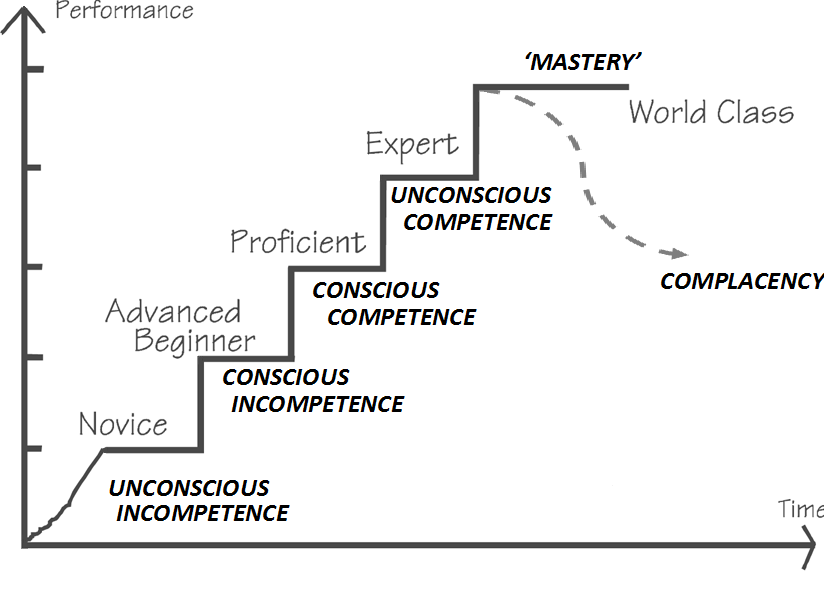In talking about professional development we borrow considerably from the field of psychology. One example is the Four Steps of Competency.
Originally developed by Gordon Training International as the Four Stages of Learning, competency can be thought of quite simply as steps from Novice to Expert.

Step 1 Unconsciously Incompetent
You don’t know what you don’t know. You are a beginner
Let’s say you’re going to learn to drive a car. The first time you probably make assumptions about how some of the operations of a vehicle work, but in reality you may not know how to start the car, put it in gear, the need to check your surroundings and so on.
Step 2 Consciously Incompetent
You know what you don’t know.
In our driving example, after a short time in the driver’s seat, it becomes apparent there’s more to this than meets the eye. You have a list of things you have been told to do, but haven’t experienced the nuances like driving in the rain or changing the oil.
Step 3 Consciously Competent
You know what needs to be done and how to do it. You are proficient.
You now have your driver’s license and you can safely navigate from place to place but it still takes your attention to get it right every time.
Step 4 Unconsciously Competent
You are an expert. You perform the task without thought.
Think about how many times you’ve driven home or to a familiar location without thought for where to turn, when to switch lanes to get to your exit, etc. Perhaps you can think of times when you have driven to work and you barely remember which route you took because it is so second nature.
This sounds like a good place to be in a skill. However, remain unconsciously competent often leads to complacency. It is necessary for the expert to continually reevaluate.
